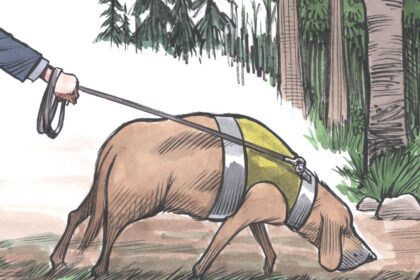Saskatchewan·NewTrends in Canadian agriculture markets have been deeply influenced by international trade barriers and tariffs, causing uncertainty for small producers. Meanwhile, consumers face sky-high beef prices and crop values are dropping significantly.People with experience in all corners of Canada’s farming industry are gathered in Regina this weekAlex Kozroski · CBC News · Posted: Nov 27, 2025 6:18 PM EST | Last Updated: 9 minutes agoListen to this articleEstimated 5 minutesThe audio version of this article is generated by text-to-speech, a technology based on artificial intelligence.Canadian Western Agribition, held annually in Regina, hosts the largest livestock show in the country. (Will Draper/CBC)Thousands of producers from many markets have convened in Regina under unique conditions for the Canadian Western Agribition. International trade barriers and tariffs are causing uncertainty for small producers. The effects have varied, however. Consumers are seeing sky-high beef prices, while crop values are dropping significantly.Saskatchewan Cattle Association chair Chad Ross said the beef margins are some of the best he’s seen in 27 years.”Everyone seems to be pretty darn happy with the the fall run and the prices we’ve had,” he said.”We’ve had some political instability here south of the border that’s caused the markets to be very volatile, and that always does cause concern. The other thing that is very important to us is the [Canada-United States-Mexico] agreement being renegotiated here next year.”Last year, the federal government reported more than 11.9 million cattle on 71,280 farms and ranches across Canada. Ross said the country exports about half of its beef, 75 per cent of which goes to the U.S.Former premier Brad Wall, who is a beef rancher, attended Agribition for a ‘fireside chat’ about the state of agriculture. He said Saskatchewan should advocate for its own international trade, rather than depending on the federal government.Former Saskatchewan premier Brad Wall speaks at Agribition in Regina about the state of agriculture, trade, and the future outlook for Western Canada. (Cory Herperger/CBC)”What is the current federal government’s focus when it comes to trade issues? Is it yellow peas and canola seed, or pork? … Or is their focus the auto sector and steel and aluminum?” he asked.”Because ladies and gentlemen, the votes are where those industries are in this country. That’s where the seats are. That’s the reality of the federation.”A sheep farmer from Hanley, Sask. said international trade signals an opportunity for his sector.Brian Hunstad, volunteering at Agribition for the Saskatchewan Sheep Development Board, said about 75 per cent of the lamb consumed in Canada is imported, while only 25 per cent is homegrown. That space for growth makes the market very attractive, he said.Brian Hunstad began farming 15 years ago, and has found success with Count Your Sheep, producing luxury bedding with wool from his sheep. (Alex Kozroski/CBC)“We get a lot of guys reaching out, just curious about it, because they know it’s a growing industry. But there’s not a lot of information about it because we’re a cattle industry,” Hunstad said.“The reason why a lot of guys like it: it’s low entry-level cost, so a quicker return on your investment, and three markets, possibly.” He is also seeing a shift in the wool market, where farmers like himself have begun to take cleaning and manufacturing into their own hands rather than through more expensive, national processors, he said.Hunstad runs a business called Count Your Sheep, producing luxury wool duvets and pillows.“It’s actually not that hard, because there are medium- to small-sized wool mills popping up all across Canada,” he said. “So if a guy does a little research on how to keep his wool clean and then market it to those guys, they’ll clean it and sell it on retail in their own store.”Cathay Merkley, a former alpaca farmer and a seller of Canadian alpaca product, said her market has grown as well.“When you get it into the hands of the consumers, as soon as people try it, they want more,” Merkley said.“Word of mouth has really multiplied the demand for the alpaca product, and over time, we’re getting better at what we do and we’re producing nicer fleece to begin with. The processors are understanding how it functions and doing really good work with yarn production.”Tim Young, founder and general manager of Young’s Equipment, Saskatchewan’s largest dealer of Case IH farm implements, said he’s seen a shift from people buying new equipment to buying used, renting, and getting more service done to keep older equipment running.Tim Young founded Young’s Equipment in 1988, and has since expanded to nine locations in Saskatchewan. (Alex Kozroski)“We’re noticing it, of course. Because it’s not only the price of the equipment, it’s the lower prices for commodities that is really a big impediment to people buying new equipment,” he said.“There’s been times where the price of equipment has been low compared to the price of commodities. Right now it’s the other way around.”Fertilizer costs are slowly dropping from an all-time high in 2022, but other input costs are making it harder for farmers, particularly those who grow crops with trade barriers, like canola and yellow peas.WATCH | Tariffs are crushing Canada’s $40B canola industry:Tariffs are crushing Canada’s $40B canola industryChinese tariffs have effectively shut the door on Canada’s second-largest canola market, driving down prices and leaving 40,000 farmers uncertain about the future. For The National, CBC’s Lyndsay Duncombe breaks down how it got to this point and the impact it’s having on the industry.“Long-term, the future is bright. Short-term, it’s going to be a little bumpy, and I think those of us that have been in agriculture for a long time, we expect to see these,” Young said.“You have to put away some money just to help you through some of the tough times … One of the great strengths of the province of Saskatchewan is our ability to produce food, and as the world’s population continues to grow, being involved in agriculture is going to be a great place to be.”ABOUT THE AUTHORAlex Kozroski is a reporter with CBC News in Regina. He has also worked as a reporter for Golden West Broadcasting in Swift Current, Sask.
Voices of Agribition: state of agriculture under discussion in Sask. amid trade uncertainty











